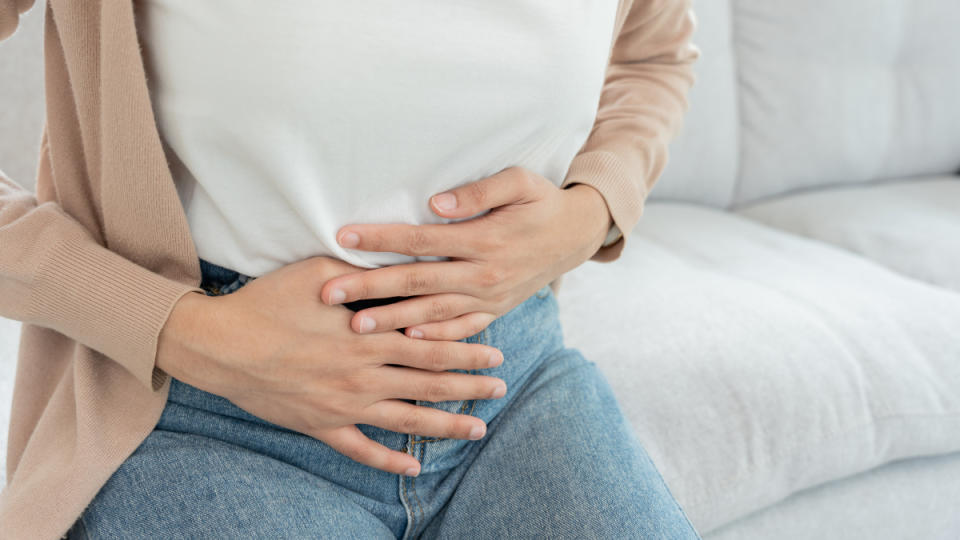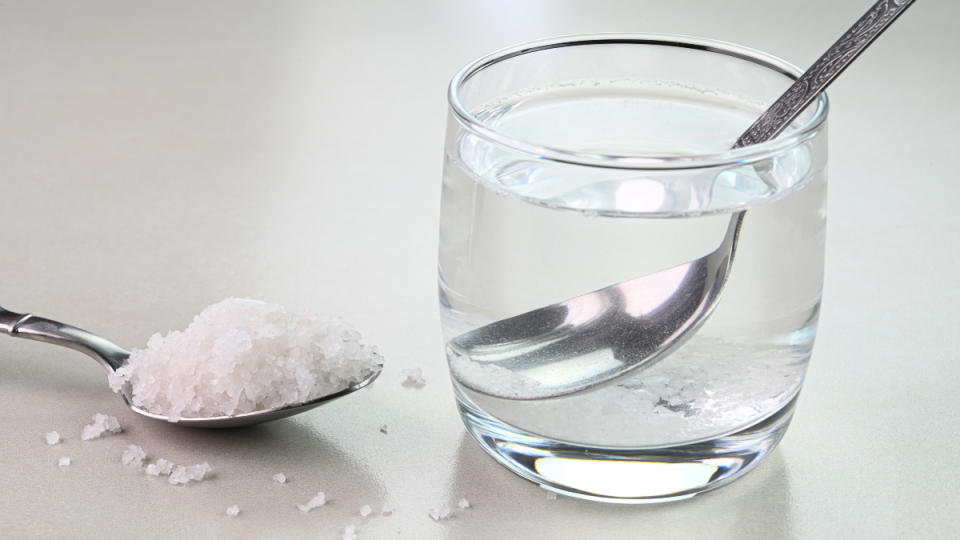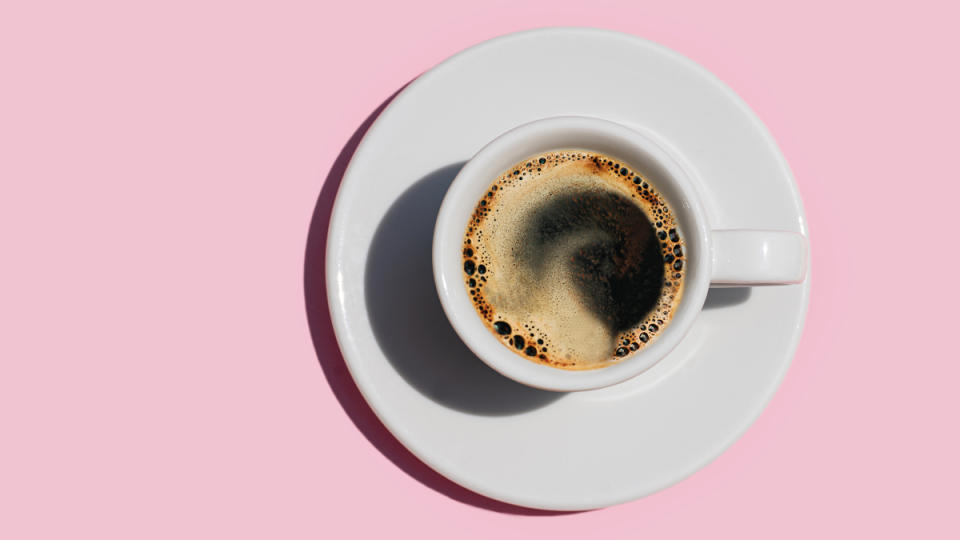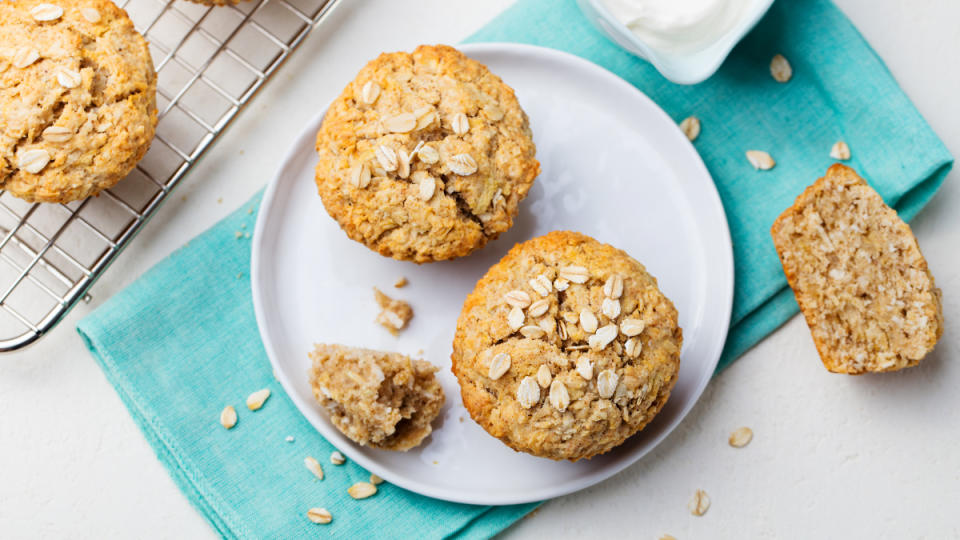Doctors Say Epsom Salt Eases Constipation — But This Type of Magnesium Works Even Better
Constipation can make you feel bloated, nauseated and uncomfortable. And when you finally do have a bowel movement, it may be painful to pass. So when you’re feeling backed up, you may be wondering how to get things moving along again. A common home remedy is Epsom salt for constipation, but does it actually work? We asked GI experts to explain how it helps and whether it’s the best option for fast relief.
Common causes of constipation
During normal digestion, your colon absorbs water from partially digested food, which helps to create solid stools. But when food doesn’t pass through your digestive system efficiently or quickly enough, the colon has time to absorb too much water. That results in hard, dry stools that are more difficult to pass, which can lead to constipation.
Constipation is typically defined as having fewer than three bowel movements per week, or going more than three days in a row without a bowel movement. Some of the most common causes:
1. Dietary changes
As we age, dietary changes may increase our risk of constipation. “Women usually have less caloric needs as they get older," says Christine Bishara, MD, a board certified Internal Medicine specialist and gut health expert. "If you’re eating less, a lot of times you’re not consuming as much fiber," which is needed for healthy digestion.
2. Chronic laxative use
This is one of the most common causes of constipation in women over 50, says Rudolph Bedford, MD, a gastroenterologist at Providence Saint John’s Health Center in Santa Monica, CA. That’s because many people will reach for a laxative before they’re truly constipated.
“Anytime somebody doesn’t have a bowel movement after three days, we consider that constipated,” Dr. Bedford says. But some people get worried and pop a laxative if they don’t have a bowel movement every day, he adds. Over time, regular laxative use can weaken the colonic muscles and affect digestion.

3. Medical risk factors
Some medications may make you constipated, including opioids, antidepressants, calcium-channel blockers and anticholinergics. Certain medical conditions, such as IBS or diabetes, may also increase your risk of constipation. (Click through to learn the difference between IBD vs IBS, plus the best ways to ease symptoms.)
4. Hormone changes
Estrogen and progesterone levels drop during menopause. This can cause a decrease in muscle tone in the intestines that slows down digestion. “The motility of the colon tends to be affected, and the pelvic floor muscles also become a little weaker,” Dr. Bishara says.
5. Pelvic floor dysfunction
“An often-overlooked cause of constipation is pelvic floor dysfunction,” says Kandis Daroski, PT, DPT, a pelvic floor physical therapist with Hinge Health. “Up to half of people with chronic constipation also have a pelvic floor problem, and pelvic floor issues increase in prevalence as you age. If your pelvic floor muscles are overly tight, it’s harder to relax to allow stool to pass.”
Related: “Pelvic Floor Massage Stopped My Embarrassing Bladder Leaks — For Good!”
Should you take Epsom salt for constipation?
Magnesium sulfate, better known as Epsom salt, is one of those do-it-all household products that has countless uses. It can be used to fertilize houseplants, soak away foot pain, soothe dry skin and more. And, yes, you can take Epsom salt for constipation. (Click through for more brilliant uses for Epsom salt.)
When it comes to relieving constipation, the key ingredient in Epsom salt is magnesium. "Epsom salt increases the amount of water in the intestine and makes the stool softer, which makes it easier to expel,” explains Gowrappala Ramesh, MD, a gastroenterologist with Memorial Hermann in Houston, TX.

The typical recommendation is to dissolve 2 to 4 tsp. of Epsom salt in an 8-ounce glass of water and sip. (The drink has a slightly bitter taste.) In most cases, this should produce a bowel movement within 30 minutes to six hours. However, there are a few potential side effects of Epsom salt for constipation, including abdominal pain, dizziness and diarrhea, Dr. Ramesh says. In rare but severe cases, it may even lead to seizures, fainting, confusion, vomiting or irregular heartbeat.
Epsom salt also may not be suitable for people with impaired kidney function. If the kidneys can’t clear excess magnesium from the body, Dr. Bishara cautions, it can build up and potentially cause serious side effects like cardiac arrhythmia. So be sure to talk to your doctor before trying Epsom salt for constipation.
Epsom salt for constipation vs. magnesium citrate
“While Epsom salt — which is magnesium sulfate — can help with constipation, if you compare it to magnesium citrate, Epsom salt has more side effects such as bloating,” Dr. Bishara says.
Magnesium citrate is a form of magnesium bound with citric acid. Like magnesium sulfate, it helps to draw water into the intestines and can have a laxative effect. The primary side effect of magnesium citrate, though, is loose, watery or more frequent stools.
“If I have someone who’s telling me they have constipation, I’ll usually recommend magnesium citrate because it has fewer side effects” than magnesium sulfate (or Epsom salt), Dr. Bishara adds.
Magnesium citrate for constipation relief comes in both liquid and tablet form. Of course, it’s still important to talk to your doctor before taking any form of magnesium for constipation.

More drinks that ease constipation
If you don't like the taste of Epsom salt for constipation, or you’re worried about the potential side effects, we have good news: These three beverages can also help get things moving again.
1. Water
Plain old water is your first line of defense against future bouts of constipation. “Ensuring adequate fluid intake can help with prevention,” Dr. Bishara says. Aim to drink at least 4 to 6 cups of plain water per day, on top of the water you get from food and other beverages.
2. Coffee
“It’s not necessarily a secret weapon, so to speak, but coffee naturally stimulates muscle contractions throughout the digestive system — so it’ll move things along,” Dr. Bedford says. A study in Gut found 29% of participants reported an urge to have a bowel movement after drinking coffee. Researchers found that folks' colon motility increased within four minutes of finishing their cuppa. (Tip: Like your coffee with a splash of cream? Click through for our easy — and delicious — homemade coffee creamer recipe.)

3. Prune juice
Not only are prunes full of fiber, but prunes and prune juice both naturally contain sorbitol, a sugar alcohol that has a laxative effect. “Sorbitol is not well absorbed by the colon, so when it enters the colon, the body wants to get rid of it quickly,” Dr. Bishara explains. “It has a stimulant effect in the intestines, and that’s what causes that diarrhea effect.”
One sipper to skip
Many herbal teas promote constipation relief, but Dr. Bedford and Dr. Bishara both caution that most of these teas contain senna, an herbal stimulant laxative. “While it works really well, your body and your colon start to become tolerant,” Dr. Bishara says. Frequent use can lead to impaired bowel function and a condition called "lazy colon".
Other natural constipation cures
If the above remedies haven't quite got your bowel movements back on track, our experts recommend these easy tips:
1. Prop your feet up
“Assume the proper pooping position,” Dr. Daroski says. “Try sitting on the toilet with your feet supported on a stool so that your knees are above your hips. This position places the pelvic floor in a relaxed position, which allows stool to pass more easily.” Look for a stool that’s height-adjustable for perfect positioning.
2. Get these 3 types of fiber
Different types of fiber can offer different benefits for your gut, so aim to get a variety in your diet each day. Here are three types the experts recommend for relieving constipation:
Pectin. This soluble fiber is found in apples, carrots, oranges, grapefruit and lemons.
Inulin. “Inulin fiber is usually present in foods like asparagus, chicory root, red onions, broccoli and artichokes,” Dr. Bishara says.
Psyllium. This bulk-forming soluble fiber is one of the most beneficial for relieving constipation, Dr. Bedford says. You can find it in fiber supplements, or you can add psyllium husk powder to your favorite baked goods (like muffins!) or morning oatmeal.

Related: Is Yogurt Good for Constipation? Yes — And So Are These 9 Other Foods
3. Swap chia seeds for basil seeds
Both types of seeds help move things along, but basil seeds have a slight edge because they contain more fiber. A 1 oz. serving of chia seeds (about 2 Tbs.) provides 10 grams of fiber, while the same serving size of basil seeds has 15 grams of fiber.
Like chia seeds, basil seeds can be soaked in water until they have a gel-like consistency. Basil seeds can also be used as a substitute for chia seeds in recipes for smoothies, overnight oats, and pudding, Dr. Bishara says. Just be sure to drink plenty of water — “you don’t want the seeds expanding in the colon and then not being able to move through,” she adds.
4. Enjoy a sunny stroll
Aerobic exercise increases blood flow to the muscles, including the muscles of the intestines, Dr. Bishara says. A brisk walk is your best bet — it gets your heart pumping without being so demanding that it diverts blood flow away from your digestive system. Plus, exposure to the sun’s UV rays helps the body produce vitamin D, which plays a key role in gut health. Dr. Bishara says she regularly gives vitamin D to constipated patients because research suggests a strong link between chronic constipation and vitamin D deficiency.
5. Try a one-minute massage
Visceral massage is a simple, gentle technique that can help move things along. “Visceral massage basically involves massage of the abdominal area from the outside,” Dr. Bishara says. “Massage from the right side, moving over to the left, following the pattern of the colon. That has been shown to help with stimulation of the muscle contractions.” Check out the video below to watch this technique in action.
For more ways to ease GI upset:
Doctors Break the Silence on Stress and Diarrhea: What They Want You to Know
These Teas End Bloating Fast — Learn How to Blend Them to Boost the Benefits
This content is not a substitute for professional medical advice or diagnosis. Always consult your physician before pursuing any treatment plan.

